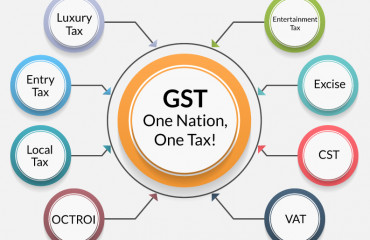
The goods and services tax (GST) profiteering watchdog has held cosmetics and personal care giant L’oreal guilty of not passing on the rate reduction benefits to consumers to the tune of ₹186 crore.
The goods and services tax (GST) profiteering watchdog has held cosmetics and personal care giant L'oreal guilty of not passing on the rate reduction benefits to consumers to the tune of ₹186 crore.
Thereby, the national anti-profiteering authority has directed L'oreal to deposit the sum along with 18% interest in the consumer welfare fund. As per the 131-page order, half of the profiteered sum, amounting to ₹93.19 crore along with interest needs to be deposited in the Central Consumer Welfare Fund, and the other half in the and the State where the supply was made, as per the order.
"The Authority finds that commensurate reduction in the prices of goods has not been effected by the Respondent (L'oreal) after the GST rates were reduced…the Authority determines that the Respondent has profiteered the amount of ₹186.39 crore on account of denial of benefit to its customers due to reduction in the rate of taxes," the NAA led by chairman Amand Shah, said in its order dated 23 June.
This is based on an investigation carried out between 15 November, 2017 and 31 December, 2018.
The authority has also directed the Directorate General Anti-Profiteering (DGAP) to conduct further investigation in the period after 31 December, 2018 to ascertain whether the company passed on the tax reduction benefit to consumers.
The matter pertains to DGAP's findings that L'oreal did not pass on the rate reduction benefit after the GST Council reduced rates in November 2017 on a slew of items including those sold by L'oreal like shampoo, conditioner, serum, hair color, skin crème, kajal, etc.
Most goods supplied by L'oreal that were charged 28% GST between 1 July, 2017 and 14 November, 2017. The rates were reduced to 18% on these items, effective from 15 November, 2017. According to the complaint, the cosmetics giant did not reduce prices of its products sold under brands like Garnier, Maybelline, L'oreal Paris, Giorgio Armani, Diesel, etc.
L'oreal manufactures and sells 12000 items called stock keeping units( SKUs) under 5 major categories- hair care, hair color, skin care, make up, luxury items.
The DGAP concluded that the allegation of profiteering by way of either increasing the base prices of the products while maintaining the same selling price or by way of not reducing the selling prices of the products commensurately stands established.
The NAA noted that the company was only required to maintain the base price of the items and change the GST rates from 28% to 18% in its billing software. "If the respondent could change several entries in its software to change the base price, it could've easily replaced one entry of rate reduction.No guidelines and methodology or elaborate mathematical calculations are required to be prescribed separately…" NAA noted in its order. It added that L;oreal was required to fix and display revised MRPs because as a manufacturer it was legally responsible for fixing the revised MRPS as per the legal metrology rules. It said that if the company was not capable of doing that, it could have simply deposited the profiteered amount in the consumer welfare fund. "However, the respondent (L'oreal) has no bonafide intentions…and continued to sell its products at pre rate reduction MRPs."
The NAA also held that increase in grammage is not in any way equivalent or akin to commensurate reduction in prices. It added that the data supplied by the company pertaining to increase in grammage is full of inconsistencies and hence, cannot be relied upon.
It also rejected the company's contention that it passed on higher benefits on some items to make up for the others, saying that it is not allowed under the law.
L'oreal has been in India since 1994 as a wholly owned subsidiary of L'oreal SA.
The NAA had ordered the DGAP in February 2020 to undertake a fresh investigation into L'Oreal India, after the agency reduced the profiteering amount to ₹186 crore from ₹216 crore it had calculated in its initial report.
The NAA has directed state and central GST Commissioners to ensure that the profiteered amount is deposited along with interest in the specified period.
The NAA has previously fined companies such as Procter & Gamble India, Johnson & Johnson and Nestle India.
According to the anti-profiteering rules under GST, "Benefits of input tax credit should have been passed on to the recipient by way of commensurate reduction in prices."
The anti-profiteering mechanism is a three-stage process. There is a state-level screening committee for local complaints and a standing committee for national-level complaints. Then, there is an investigation by the directorate general of anti-profiteering and a probe by the decision-making body, the NAA.
